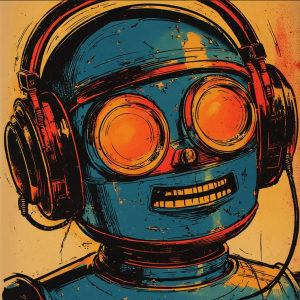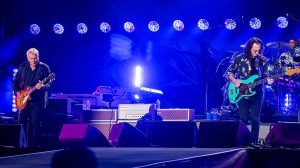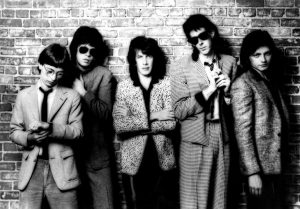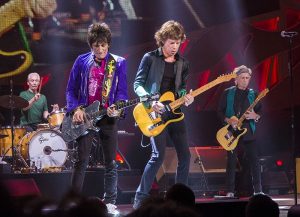Why Today’s Music Has Lost Its Soul: A Classic Rock Fan’s Lament
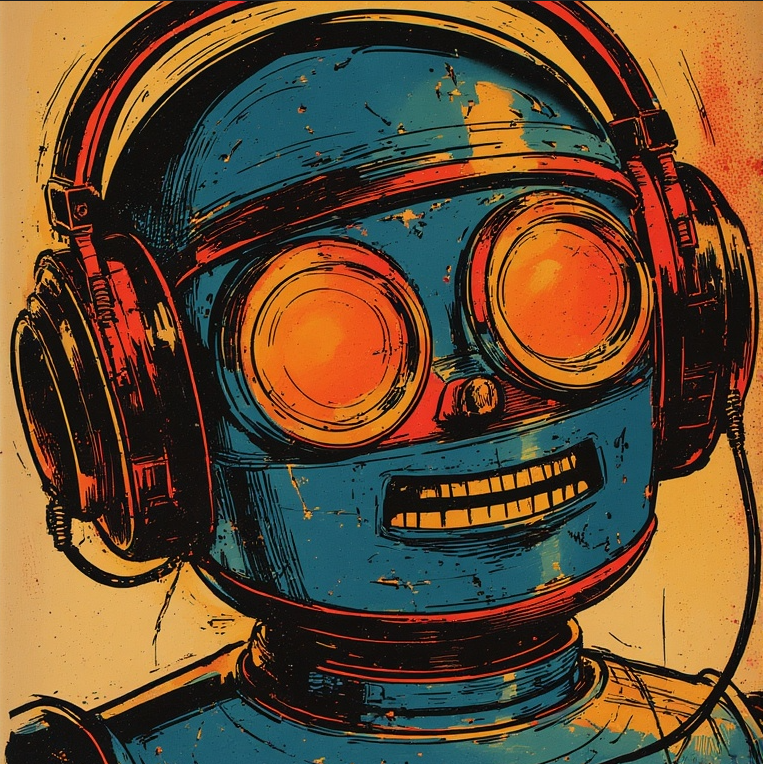
Where do I even begin? I’m pushing 70 now, and I’ve spent a good portion of my life with music. Back in the day, music wasn’t just sound, it was a lifeline. I remember driving to Boston, Worcester or Providence to see Rush, Supertramp, Heart and other greats from that era. Or losing myself in Pink Floyd’s Dark Side of the Moon on a pitch-black night, where every note dripped with raw human angst and cosmic wonder.
Those were the golden years: the 60s, 70s, and 80s, when rock music pulsed with genuine emotion, bold innovation, and that unfiltered soul that could make your heart ache or your spirit soar. But flip on the radio or scroll through a streaming playlist today, and what do you get? A glossy, soulless slurry of over-produced beats and auto-tuned vocals that feel as authentic as a plastic flower.
Modern music has traded heart for hype, creativity for convenience, purity for profit and I’m here to tell you why it’s breaking this fan’s heart. Let’s reflect on what made classic rock so damn special. In the 60s, bands like The Beatles weren’t afraid to experiment. They started with simple pop hooks in “I Want to Hold Your Hand” but evolved into psychedelic masterpieces like “Sgt. Pepper’s Lonely Hearts Club Band,” blending orchestras, sitars, and tape loops without a computer in sight.
It was all human ingenuity as demonstrated by John Lennon’s vulnerable lyrics about loss in “In My Life,” born from real pain and reflection. The 70s cranked it up with Led Zeppelin’s epic sagas; “Stairway to Heaven” wasn’t just a song, it was a journey, with Jimmy Page’s guitar weeping like a wounded lover and Robert Plant’s howls echoing primal desires. And don’t get me started on the 80s. Queen’s incredible “Bohemian Rhapsody” shattered conventions with operatic flair and headbanging riffs. And to think Elton John said it would never be a hit!
These tracks weren’t polished to perfection; they had grit and imperfections that made them feel alive. Live shows were marathons of passion, not synchronized dances with lip-syncing. What tied it all together was the humanity. Musicians poured their souls into their craft. Jimi Hendrix’s feedback-laced solos on “Purple Haze” came from endless jams, not algorithms. Bob Dylan’s protest anthems like “Blowin’ in the Wind” sparked revolutions because they stemmed from real-world fury and hope.
There was no hiding behind technology; if a note was flat, you felt it, and that vulnerability connected all of us. Fans lived through the music. The Vietnam War echoes in Creedence Clearwater Revival’s “Fortunate Son,” the sexual revolution in David Bowie’s glam experiments. It was innovative because artists pushed boundaries manually, collaborating in smoky studios, feeding off each other’s energy.
Fast-forward to 2025, and it’s a different story. Today’s music scene is drowning in over-production, where every track is buffed to a sterile shine. Producers layer on effects until the original spark is buried under synths and samples. Consider the pop stars dominating the charts today. They sound interchangeable, their voices warped by Auto-Tune to hit impossible highs without a crack. It’s like painting by numbers; where’s the risk? The emotion? A recent Forbes article nailed it: AI-generated content is saturating the market, making it hard for real artists to stand out.
Forbes.com: “We’re seeing “AI slop”—low-quality, mass-produced tunes flooding platforms like Spotify, diluting the pool and starving genuine creators.”
Insurancejournal.com: “Remember the Velvet Sundown fiasco this year? An AI-generated band racked up millions of streams before admitting it was all synthetic, from music to backstory. It sparked outrage, with insiders calling for labels on AI tracks so listeners aren’t duped.”
Theguardian.com: “That’s not innovation; that’s deception.This over-reliance on technology is killing the creative spirit. Digital Audio Workstations (DAWs) and AI tools let anyone “make” music with a few clicks, but at what cost?”
Theguardian.com: “It’s not art; it’s algorithm bait, designed for short attention spans and viral TikToks rather than lasting impact.
On social media, I’m not alone in this gripe. Folks on social media are venting. One user lamented modern pop as “terrible and unlistenable,” making them sad with its lack of emotion.”
I miss the days when albums were events, not endless singles. Listening to Fleetwood Mac’s Rumours felt like eavesdropping on real drama. Stevie Nicks’ “Dreams” oozed betrayal from her split with Lindsey Buckingham. I have fond memories of cruising around town with a friend who loved that album so much it felt like the soundtrack to his life. I cannot begin to imagine how many time I heard every track on that album. And I wasn’t complaining.
Today’s tracks? Often ghostwritten by teams, polished by machines, lacking that punch and produced for one reason: profit. Innovation? Ha! Genres blend into mush, with rap-rock hybrids or EDM-infused pop that all blur together. The live scene suffers too. Concerts are spectacles with pyrotechnics masking weak vocals, not the raw energy of a Van Halen shred-fest.
Is there hope? Maybe. Some indie acts are bucking the trend, going analog to recapture that warmth. Platforms like Deezer are tagging AI music, pushing for transparency.
As an old-timer, I’d tell young fans: Dig into the classics. Happily some of them are doing exactly that. I have noticed lately that “reaction videos” seem to be a thing. In many cases they feature younger musicians who take time to listen to music from the past. Most often they seem genuinely shocked and delighted to hear how great so much of the music is from the glory days of rock.
Perhaps it is too much to expect that we will see a flood of new groups forming that echo that classic sound but it has been happening to some extent. Groups like Greta Van Fleet, Dirty Honey and The Cold Stares definitely sound more like the bands I grew up listening to and I hope more will follow. Given enough exposure, I suspect groups like that would attract hoards of fans that may not have known that music could be that good.
If we demand more heart, maybe the industry will listen. Until then, I’ll stick to my Zeppelin records, dreaming of a rock renaissance where humans reclaim the throne from the machines much like the triumph of the good guys at the conclusion of Rush’s epic “2112.”
